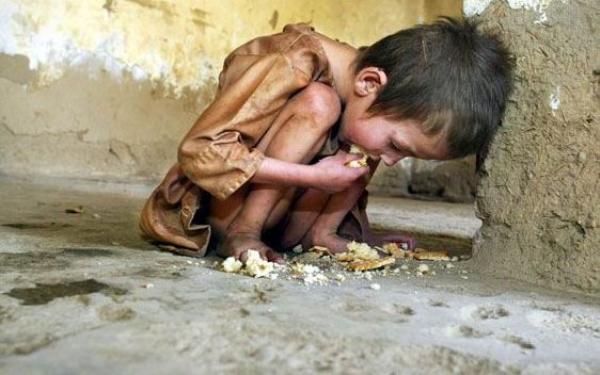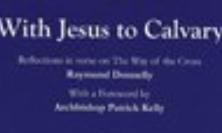What is our relationship, as Christians, to poverty? As part of Thinking Faith’s Lenten series, Sarah Broscombe, reflecting on her experience of the World Social Forum 2009, explains how the Christian understanding of poverty does not just focus on a lack of material goods, and how it is inextricably linked to a concern for environmental issues.
‘Leftist forum ends in Amazon: capitalism seen dying’, laughs the Stabroek News, Georgetown, Guyana, the day after the World Social Forum finishes. It is easy to dismiss the World Social Forum (WSF) as a left-wing hippie Carnival-with-a-Conscience. But what is the WSF, what does it achieve, and does it call for any response from us as Christians?
The first World Social Forum in Porto Alegre in 2001 was a reaction to the World Economic Forum in Davos. It has continued annually in various forms. The WSF is not a body and therefore has no opinions of its own. It is rather, according to its own Charter of Principles,
an open meeting place for reflective thinking, democratic debate of ideas, formulation of proposals, free exchange of experiences and interlinking for effective action, by groups and movements of civil society that are opposed to neoliberalism and to domination of the world by capital and any form of imperialism, and are committed to building a planetary society directed towards fruitful relationships among Humankind and between it and the Earth.
The Forum has three main functions: a megaphone for the voice of the disenfranchised; a meeting and networking place; and a forum to develop humanisation tactics for development and even politics. In the light of this, a lot of the WSF’s negative publicitystems from misunderstandings about what it really is. It is not a powerhouse, a think-tank or a coalition. It is generative, not conclusive. It creates networks rather than driving for consensus. It seeks fruitfulness, not economic growth. By its own measurement, a ‘successful’ WSF would not end with a strategic plan for alternative development, but with new solidarity networks, a web of new ideas, and participants who return to their grassroots work more hopeful, and more creative.
As well as attending the WSF in Belem do Para, Amazonia, at the end of January this year, I also attended the Jesuit-run pre-forum, ‘Faith in Amazonia: faiths, religions and the defence of life’. Around 230 Jesuits and co-workers from 28 countries met to discuss, pray and reflect together, and to prepare for the Forum. These four days were exciting and inspiring in content and in process, and perhaps most of all in how they developed our understanding of our relationship to creation as Christians. The expert inputs, and sharing of the first-hand experiences of indigenous members of our group from India and the Amazon, called us to base our integrity on our integration of ourselves, our solidarity with others (especially indigenous people), and our relationship with creation.
Three specific insights from the pre-forum helped me to understand the wealth that Christianity has to contribute to the WSF, and have stayed with me. The first was from Frei Betto, the well-known Brazilian Dominican friar, theologian and activist, who said that Jesus was asked only two questions during his life; the rich asked, ‘What should I do to inherit eternal life?’ and the poor asked, ‘How can I have a real life here, now?’ Frei Betto maintained that Jesus was frustrated by the first question and approved of the second. Thus priests take the vow of poverty and do not keep it, whereas the poor don’t take it but do keep it.
For Christians, especially during Lent when austerity and poverty are rightfully highlighted, we need to re-examine the paradoxical nature of our relationship with poverty. On the one hand, we fight the poverty that springs from injustice in many ways: by giving to justice organisations, volunteering, making choices and building relationships that increase our determination to live justly, love mercy and walk humbly with God. For each of us, it means something different to live out of a core of justice, mercy and humility. On the other hand, however, poverty is not simply an evil. Jesus advocates it to the rich young ruler, and blesses it in the Sermon on the Mount. St Ignatius recommends it as the maturest stage of humility in the meditation on the Two Standards.
Jon Sobrino, in his 2008 book The Eye of the Needle, explores the relationship between poverty and salvation through the formula: ‘no salvation outside the poor’. He speaks of an overturned logic, where the preferential option for the poor means not benefaction, but the humility to receive from the poor. I do not think we stop often enough to ask ourselves ‘What is poverty?’, or perhaps more pertinently, ‘What is the opposite of poverty?’ Is it wealth? No. Affluence? Not quite. Is it freedom? Yes, but in a very special sense. It is the freedom of the Spiritual Exercises; not the freedom to choose and use as we wish, but the freedom to flourish in a way that realises our potential and makes us available for others. The opposite of ‘bad poverty’ is ‘good poverty’. This particularly Christian understanding of poverty and solidarity is of great value to the World Social Forum.
The second insight that struck me at the pre-forum was liberation theologian Jose Comblin’s warning against infantilised faith; he challenged us to think through what it really means to follow Jesus. In the words of Paul Martin SJ, a fellow participant, ‘If we wish to model our lives on the life of Jesus we need to hear his warning that “anyone who wants to be a follower of mine, must take up his cross and follow me.” Just as those who held power at the time of Jesus chose to use that power to silence him, so those who hold power in today's world will use that power to silence the voice of those who call for a different world… The new world begins not when the powerful are overthrown but when those whom they seek to dominate no longer allow fear to control their lives but live in the freedom of the children of God. That is a different world, one that is, in one sense, already here, and in another, will always be a dream for tomorrow.’
Christian development organisations and charities have several distinctive characteristics. Often they have the great benefit of being rooted in local communities. They operate from a clear set of values which helps them to remain critical of development that focuses too strongly on financial growth to the exclusion of human well-being. People of faith also give their religious leaders the right to make calls upon them in action for justice and against destructive poverty.A truly Christian passion for justice should be motivated not by anger but love. Christians do not see themselves as being ultimately responsible for delivering justice: responsibility for outcomes and successes lies with God. Christians also believe in each person’s preciousness in the eyes of God. This is more than ‘human rights’. It is a source of self-esteem as well as of strength, and should result in a profound mutual respect between poor and non-poor, leading to compassionin its specifically Christian sense, where all are ‘deeply affected by the sufferings of others’, in the words of the CAFOD mission statement.
We are the lucky ones. Activists and agencies fighting for short-term causes are the brave Canutes, shoring fragments against the ruins of the oppressed which they know can be overwhelmed by the logic of power. Hope gives Christians a vision of the future which is restricted neither by the possible, nor by their own capabilities. This hope can give individuals strength and stamina, preventing the burnout and disillusionment from which so many social activists suffer.
But I don’t think it is one-way traffic. The third insight from the pre-forum that made an impact on me was from Marina da Silva, who recently stepped down as Brazilian Minister of the Environment. She posited that the failures of development are not a problem of techniques, but a problem of ethics. As Christians in the developed world, we run the risk of fighting poverty in order to permit everyone to be prosperous – to be ‘more like us’. We can fall into the trap of associating poverty alleviation too simplistically with wealth-creation, acquisition, having more. We have bought too much into a dominant cultural paradigm, whether we use the language of neoliberalism or not. We seek the successes, the measurable targets, the advertising skill of the society around us. We call it ‘inculturation’ or ‘reading the signs of the times’, and when done wisely, that is what it is. But we run the risk of commodifying the Christian message; measuring ‘failing parishes’ by the numbers in the pews, valuing time spent achieving over time spent accompanying, and marginalising holistic approaches (unity of people in ecumenism, unity with creation in environmentalism) in favour of a compartmentalisation of theology, dogma, politics and everyday social realities which does nothing for our credibility with the secular world, and even less for our effectiveness as agents of change.
Lent is a time to examine ourselves. For me, just starting out as a development worker in Guyana, it is becoming clearer how insidiously the prevailing cultural paradigm operates in my own subconscious. When I find myself surprised by the articulacy and wit of a Georgetown market trader, it highlights how accustomed I am to leaping to certain conclusions about people’s education according to their job. When I am embarrassed by my perpetual scruffiness in my mosquito-repellent performance clothing, I notice, as I usually do not, what part appearance plays in my self-image. When I cannot shop, I realise how rarely I spend a day without using any money, and how complex shopping really is – not in simplistic terms of acquisition or greed, but in my sense of control over my environment, variety of diet, sense of independence, freedom of choice.
The WSF helps challenges this. Its slogan, ‘another world is possible’, resonates with the gospel itself. The Christian tension between ‘the kingdom of God is within you’ and ‘the kingdom of God is near’ calls us to live in becoming, in process, accepting the frustrations of our tininess as creatures. The WSF, unlike many socio-political and development agents, does not propose the grand solution, the great project which will ‘lift people out of poverty’. It personalises, humanises, provides a forum for groups to meet face-to-face – especially South-to-South – and step forward in a solidarity which encourages and strengthens them. Both the WSF and the documents of the 35th General Congregation of the Jesuits call for a new logic, a new determination which grows from a deeper understanding of the inseparability of poverty and environmental issues.
In the incarnation, God chose poverty. In Nazareth, in carpentry, in itinerant preaching rather than learned clericalism, Jesus chose poverty. In Lent, we challenge ourselves to choose the right kinds of poverty – not the token gesture, not the sub-contracting of our Christian responsibility by giving money or ‘leaving it to the experts’, but the freedom of being owned by nothing, being constrained by nothing, being free to stand in demanding and sometimes painful solidarity with God’s favourites.
Sarah Broscombe is a development worker with the Society of Jesus in the Guyanese interior. She previously worked for the British Jesuits for seven years in the field of volunteering.






